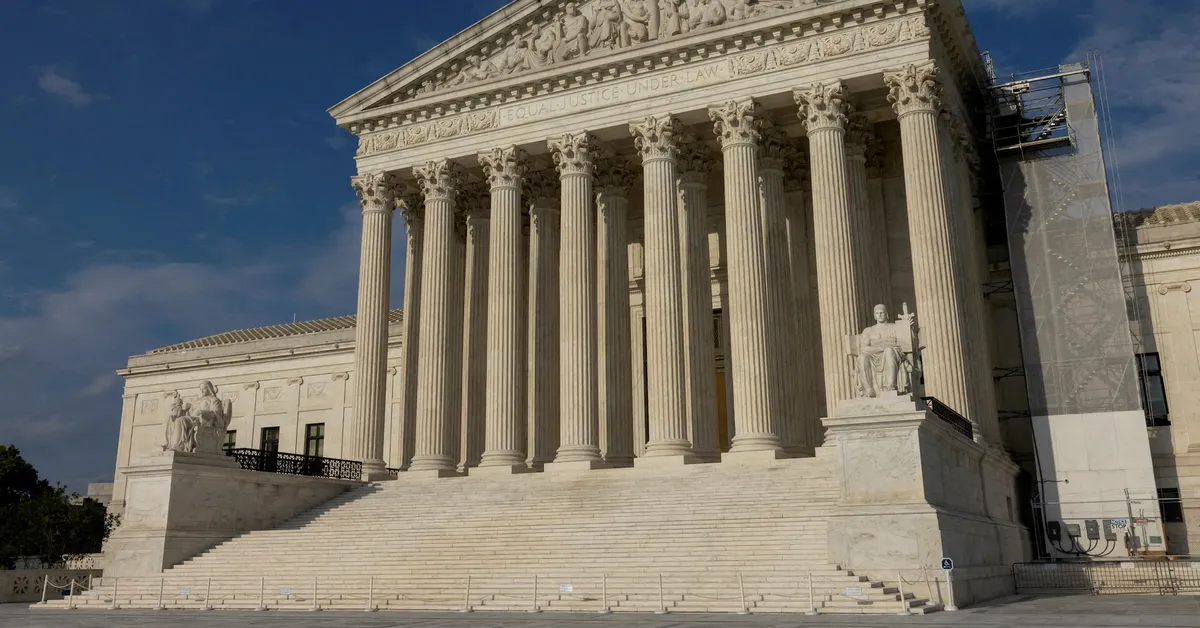
The White House has taken a strong stance against what it describes as activist federal judges, calling on the U.S. Supreme Court to intervene. This call to action comes amid escalating criticism from President Donald Trump and his allies towards judges who have ruled against his administration's policies. White House Press Secretary Karoline Leavitt emphasized the need for the Supreme Court to confront judges she claims are acting inappropriately.
During a press briefing, Leavitt stated, "We have judges who are acting as partisan activists from the bench. They are trying to dictate policy from the president of the United States. They are clearly trying to slow-walk this administration's agenda, and it's unacceptable." Her remarks followed Trump's call for the impeachment of U.S. District Judge James Boasberg, who recently issued a temporary order halting the administration's efforts to remove migrants under a controversial 18th-century law.
Trump's comments drew immediate criticism from Chief Justice John Roberts, who asserted that an appeal, rather than impeachment, is the appropriate course of action when disagreeing with a judge's decision. In a pointed social media post, Trump labeled Boasberg a "Radical Left Lunatic Judge" intent on overstepping his judicial role, further escalating tensions between the administration and the judiciary.
The aggressive rhetoric from Trump and his team has raised alarms among legal experts regarding potential non-compliance with court orders, which could lead to a constitutional crisis. Under the U.S. Constitution, federal judges operate as a separate branch of government, holding equal power to the executive branch. In a recent interview on Fox News' The Ingraham Angle, Trump asserted that his administration would not defy any court orders, expressing confidence that the Supreme Court would ultimately support his stance on the deportation of Venezuelans.
The Trump administration is keen for the deportation case, along with other legal battles, to reach the Supreme Court, despite Roberts’ disapproval of the calls for impeachment. A senior White House official noted that Roberts, part of the court’s 6-3 conservative majority, is seen as an ally in the grand scheme. "We view Roberts stepping in as him saying he is an establishment guy," the official remarked, suggesting that Roberts will ultimately side with the administration.
Despite facing numerous legal challenges, the Trump administration has achieved significant victories aimed at reducing the federal bureaucracy and cutting foreign aid spending. However, major policy implementations concerning immigration, fiscal spending, and social issues have faced significant judicial roadblocks. Courts have intervened to prevent efforts to limit birthright citizenship, paused freezes on financial assistance, and restricted cost-cutting measures from affecting sensitive Treasury Department systems.
While the prospect of impeaching judges remains slim, a White House official acknowledged the challenges involved. For a judge to be removed from office, the House of Representatives must pass articles of impeachment by a simple majority, followed by a two-thirds majority vote in the Senate for conviction. Although Republicans control both chambers of Congress, they lack the necessary two-thirds majority in the Senate. Nonetheless, some Republican leaders have not dismissed the possibility of congressional action. A spokesperson for House Speaker Mike Johnson indicated a willingness to collaborate with the Judiciary Committee to explore constitutional options to address this pressing matter.
In summary, the ongoing conflict between the Trump administration and the judiciary highlights significant tensions regarding judicial independence and the execution of federal policies. As the situation evolves, all eyes will be on both the legal outcomes and the potential ramifications for the balance of power within the U.S. government.